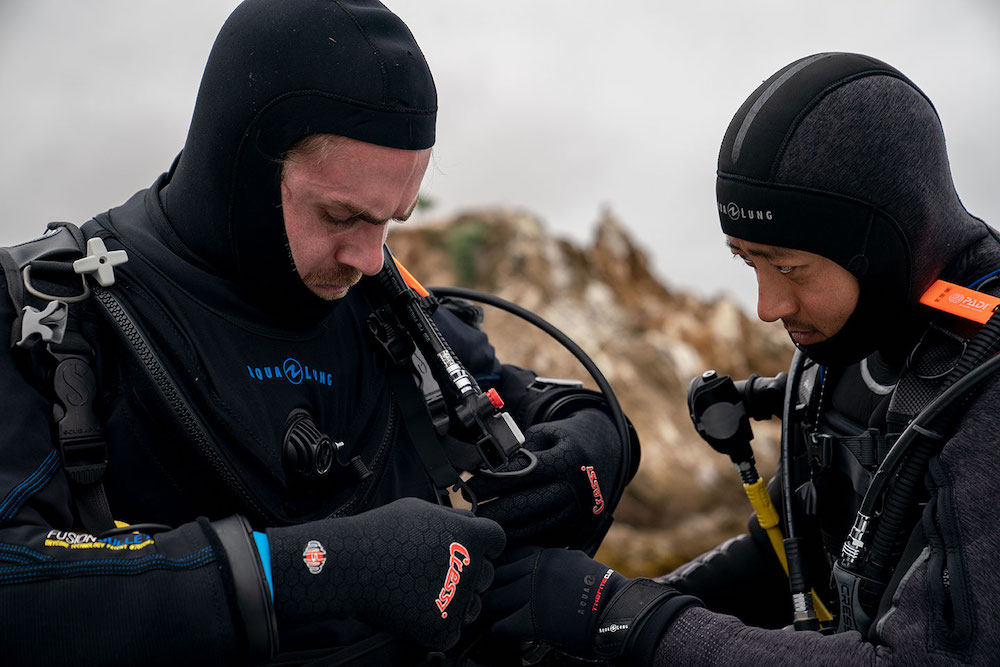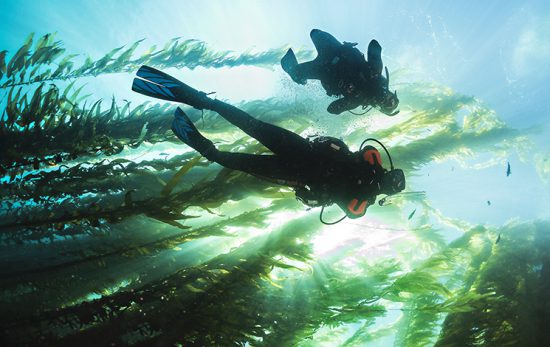One of the most difficult (but important) things you may ever do as a diver is call off a dive. During the Open Water Diver course® we all learned: anyone can end a dive for any reason.
Simple, right? Unfortunately, some divers overthink the situation. They worry their diving companions will be disappointed, or cling to the irrational idea that being uncomfortable makes them tough.
The reality is:
- If you’re cold, bored, struggling or wondering “is this a good idea?” – there’s a good chance your buddy feels the same way
- There’s never a good reason to put your health and safety at risk
- Any diver that reacts negatively to calling off a dive – is not a good dive buddy
Here are a few reasons you may choose to end a dive, or not go diving in the first place. This isn’t a comprehensive list, just some of the most common.
#1 You’re Not Feeling Well – Mentally or Physically
Diving is supposed to be fun and relaxing. If you don’t feel mentally or physically capable of being in an environment that isn’t designed for humans – that’s okay. If you’re worried your dive buddy will feel let down, imagine how horrible they would feel if you had an accident. Don’t put yourself or your buddy at risk; don’t dive if you don’t feel like it.
#2 You Discover a Gear Problem
If you spot a bubble leak, crack, or other equipment issue, fix the problem before you descend. If you’re already diving, make a safe and controlled ascent. Don’t try to solve problems underwater. Remember: scuba equipment is life support equipment.
A small gear issue can quickly escalate into a life-threatening situation. If you encounter a diver who feels differently, remind them equipment problems are one of the top three triggers of diving fatalities according to Divers Alert Network (DAN).

#3 You Can’t Clear Your Ears
Ears. Ugh. They’re fine one day and plugged the next. If you can’t equalize, or if your ears start giving you problems – end the dive slowly and safely. Don’t risk an injury that will take you away from diving for weeks or even months, or the dreaded reverse-block.
Many divers who wouldn’t even think of pushing depth limits choose to push the limits of their bodies. As a result, nearly half of all diving injuries are ear-related.
If you have trouble equalizing, you’re not alone. Check out these tips on ear equalization and ear care for divers.
#4 The Dive is Beyond the Limits of Your Experience
Don’t let someone talk you into a dive you’re not comfortable with. Whether it’s a deep dive, wreck dive, or even a familiar site where conditions are not ideal, if something inside is telling you don’t dive – don’t dive.
Underwater, if your buddy heads into a swim-through and you’re not comfortable following, tug on their fin and signal no. A good buddy will respect your wishes. If the dive guide has led the group into an area or depth where you don’t want to follow, signal your buddy that you don’t want to follow and want to stick together and stay shallow.
#5 You’re Getting Cold
Even in warm, tropical water, divers can experience hypothermia, because 27°C/80°F is still a lot colder than 37°C/98.6°F. Water conducts heat away from the body much faster than air, and hypothermia sets in when your body temperature drops only a few degrees (to 35°C/95°F).
Don’t wait until you’re shivering to call off a dive. If you’re feeling fatigued or mentally impaired, signal to your buddy that it’s time to ascend (they’re probably cold too!).
How good is your thermal stress knowledge? Try this quiz from our friends at DAN.
Bad Reasons to Go Diving or Stay Underwater
- We spent a lot of time/money to get here.
- My dive buddy will be upset.
- No one else seems to be cold.
- I haven’t found the (animal name) I came here to see.
- My ears will be okay if we don’t go any deeper.
- Everyone else has plenty of air.
Anyone can call the dive at any time. Listen to your instincts and don’t dive with anyone who doesn’t agree to this fundamental safety mantra. There are plenty of other divers in the sea!
Looking for new dive buddies? Contact your local PADI® dive shop.
Further Reading
Ear Equalization and Ear Care for Scuba Divers
How to Avoid Looking Like a New Diver
A Guide to Scuba Diving Hand Signals
When to Replace Your Scuba Gear


